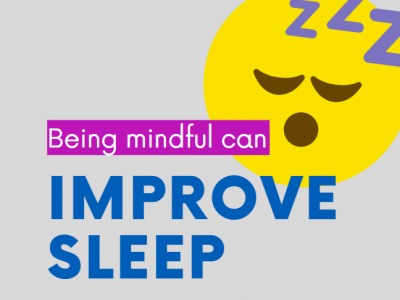- Home
- Needs that TALKWORKS can and can't meet
- Cognitive Behavioural Therapy (CBT)
- Mindfulness
- SilverCloud: Online treatment and support
- Video Appointments
- Learn about mental health
- Mental health resources
- Why talking helps
- Support for Students
- Are you a member of the Deaf Community?
- Information for Carers
- Living well with a long term health condition
- Introduction to mindfulness
- Mindfulness graduates workshop
- TALKWORKS for Menopause
- TALKWORKS for Improving Sleep Workshop
- TALKWORKS for Understanding IBS
- Talking Health Team
- Blog
- Testimonials
- FAQs
- Become a volunteer
- Emergency Mental Health Support
- Patient experience questionnaire
-
How we can help
- Needs that TALKWORKS can and can't meet
- Cognitive Behavioural Therapy (CBT)
- Mindfulness
- SilverCloud: Online treatment and support
- Video Appointments
- Learn about mental health
- Mental health resources
- Why talking helps
- Support for Students
- Are you a member of the Deaf Community?
- Information for Carers
- Workshops
- Who we are
- Testimonials
- FAQs
- Become a volunteer
- Get in touch
Men’s Health Week: Why your mental health matters and where to access support
This year’s Men’s Health Week is taking place from Monday 12 to Sunday 18 June. The aim of the week is to raise awareness of the challenges that men can face in relation to their health and wellbeing, and the support that’s available. In the article below, Chris from our TALKWORKS South and West team, explores how mental health difficulties can impact our daily lives and why so many men struggle in silence. He breaks down common misconceptions around masculinity and mental health and focuses on the support that’s available.
What is a common mental health problem?
Have you ever felt low in mood? Lost interest or enjoyment in activities you used to love? Found yourself worrying too much about one or more thing? Many of us have at some point in our lives. It’s part of being human. Sometimes it comes and goes. But other times, these problems can start to make a real impact on our day-to-day lives. It’s when these kinds of symptoms feel like a problem that we need to stop and think about how to overcome them.
Why does it matter?
As many as 1 in every 8 men in England have a common mental health problem. It’s incredibly widespread. So why do we feel embarrassed about something so common? Perhaps it’s because no one else is talking about it. That feeling of shame keeps us from opening up to others. And if no one else is talking about it, it doesn’t feel safe to be the man who does.
When left unsolved, these problems can end up having an impact on physical health, on relationships, on work and in severe cases, can lead to an early death. Three quarters of people who take their own life in England and Wales are men. That means three times as many men die by suicide than women. In 2021, 4,129 men took their own lives. That’s 11 men every day. In other words, one man died from suicide every 127 minutes. These are chilling numbers.
“No-one else is feeling the struggle; I should be able to man up and muscle through…”
I touched on this above. A huge number of men keep their troubles on the inside. While numbers of male referrals into TALKWORKS are increasing, they still fall significantly behind the number of women who are coming forward for support. It’s also men who are more likely to go missing, become dependent on alcohol or who end up turning to recreational drugs. It’s far healthier to acknowledge our problems and seek help.
“Other people have it much harder; I shouldn’t need help to get through the day…”
A wise man once told me ‘every man’s problem is his own’. It’s true that different people face different difficulties, and it’s important to acknowledge gratitude for the good things we have in life. Now, we also need to be kind to ourselves. Give ourselves a break. Acknowledge that if we’re going through a rough patch, that we can get out of this, especially if we reach out for professional support.
“Asking for help shows I’m weak…”
Let’s look at this slightly differently. Imagine we sustain an injury in our arm. It hurts. It slows us down and prevent us from doing certain tasks for a few days.
Now imagine that arm isn’t getting any better. A few weeks later, we’re still struggling. Perhaps we casually mention it to a friend or family member. They might be able to offer some advice, but they recognise they are not medically trained to support with this, and point us in the direction of a healthcare professional.
We reach out to the healthcare professional and explain the difficulties we are experiencing and the impact it’s having on our day-to-day life. They offer advice, support and help us to take the steps to get back on track and aid our recovery.
Our mind is part of our body. There is no difference between asking for help for our mind and asking for help for a muscle or a broken bone. There is no shame in it. By not reaching out for support, we are only prolonging the pain and in the long run, could be making things worse.
“So what can I do to feel better?”
We’ve come a long way in the last few years. More people are talking about mental health and wellbeing. The word is getting around. But there’s still a lot more to do to teach men (and their families) that it’s okay to talk.
Reaching out to TALKWORKS is a good first step to take. Our NHS service offers support to adults (age 18+) across Devon (excluding Plymouth) with a range of common mental health problems, including low mood, worry, stress and sleep difficulties. Rather than delving into your past, the majority of our therapy options look at the here and now, and what we can do to help get you back on track.
Treatment and support includes one-to-one sessions with a therapist (face-to-face, online or over the phone), live text-based therapy, online self-help and wellbeing workshops. You can refer yourself for support without needing to go through your GP by calling 0300 555 3344 (Monday to Friday from 9am – 5pm) or you can fill out our online self-referral form.
Additional areas of support:
If you are experiencing mental health distress or are worried about someone else’s emotional state - support is available from the Devon Partnership NHS Trust’s First Response Service. This is a 24/7 Urgent Mental Health Helpline and can be accessed by calling 0808 196 8708. If you live in Plymouth please call 0800 923 9323.
Mental Health Matters Devon provides a 24 hour, 365 days a year mental health helpline by calling 0800 4700317.
The Moorings can provide telephone advice and out of hours mental health support from three locations across Devon (Barnstaple, Exeter and Torquay).
Samaritans are available 24/7. They offer a supportive conversation around a whole range of mental health issues and also offer a call back service and follow up calls. You can contact them at any time if you are in need of support.
Related Posts

Four ways mindfulness can help to improve your wellbeing
Posted by Admin on 28 February, 2024

Volunteer Archie shares his experience with TALKWORKS
Posted by Admin on 24 January, 2024

